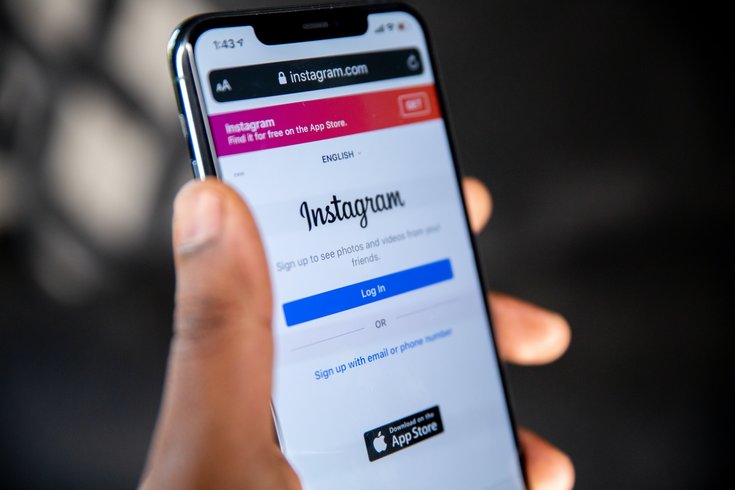
October 25, 2023
 Solen Feyissa/Unsplash.com
Solen Feyissa/Unsplash.com
Meta, the parent company of Facebook and Instagram, is facing a federal lawsuit over claims that its social media platforms cultivate addiction and cause harm to young people.
Pennsylvania and New Jersey are among dozens of states suing social media giant Meta over claims that its platforms, including Facebook and Instagram, are addicting and mentally damaging to children and teens.
The federal lawsuit, filed Tuesday in California, claims Meta designed specific features intended to keep kids hooked on its platforms. The attorneys general of 33 states argue that Meta knew about the dangers its products posed to young people, but downplayed and concealed them in the interest of growth and competition with rival platforms like TikTok.
"Profits – not people, not its most vulnerable users, children and teens – drive the decision making at Meta. That stops today," New Jersey Attorney General Matthew J. Platkin said.
Separate complaints were filed in state and federal courts by the attorneys general of Washington, D.C. and eight states, bringing the total suing Meta to 41 states.
The lawsuits are the culmination of a joint investigation by prosecutors into Meta's business practices in light of emerging research about the health effects social media has on children. The main suit alleges Facebook and Instagram have "profoundly altered the psychological and social realities of a generation of young Americans" by deliberately exploiting their vulnerabilities.
In recent years, some public health researchers have directed more scrutiny toward the role social media contributes to depression, anxiety and body dysmorphia in children and adolescents. Connections also are being drawn more pointedly between youth gun violence and engagement with social media platforms, in addition to longstanding concerns about cyberbullying.
In May, U.S. Surgeon General Dr. Vivek Murthy released a report portraying social media as the driver of the youth mental health crisis. He called for greater collaboration between tech companies and independent health researchers to evaluate the harms of social media and tailor platforms to minimize negative impacts.
But prosecutors allege Meta strategically worked to create features that prolong the amount of time young people spend on Instagram and Facebook. They claim Meta knew features like infinite scrolling and recommendation algorithms would expose young people to harms, yet marketed its platforms as safe and published "misleading reports" claiming to demonstrate low rates of negative experiences among kids.
"Meta not only targets young minds with addictive, harmful, trap-door content – it also lies to the public and parents about how their platforms are safe," Pennsylvania Attorney General Michelle Henry said. "Creators have built multi-billion dollar empires by promoting a click-bait culture that is psychologically hurting kids.”
Government regulators have grown more wary of Meta's practices since a 2021 report in the Wall Street Journal included insights from Facebook whistleblower Frances Haugen. Internal research detailed how leaders at Facebook knew Instagram worsened body image problems for one-third of teenage girls who already had such issues. Some teens told researchers at Facebook that they felt "addicted" to the platform, but were unable to use self-control to check it less often.
At the time, one of the conclusions Meta's executives reached was that Instagram appeared to be engineered to encourage "social comparison" more than rival platforms like TikTok and Snapchat.
Some states, including Utah and Arkansas, have since tried to adopt aggressive measures to prevent children under 13 from accessing social media and require parental consent for teens to create accounts. Those legislative efforts have faced roadblocks in federal court because of questions about their effectiveness and the concerns that they infringe on First Amendment rights.
In response to the lawsuits, Meta spokesperson Andy Stone said the company is making efforts to improve its products and reduce harms.
"We share the attorneys general's commitment to providing teens with safe, positive experiences online, and have already introduced over 30 tools to support teens and their families," Stone said in a statement. "We're disappointed that instead of working productively with companies across the industry to create clear, age-appropriate standards for the many apps teens use, the attorneys general have chosen this path."
The features referenced by Stone include stricter privacy settings for young users, more tools for parents to monitor their kids' activities, and warnings that remind kids to take breaks from Facebook and Instagram.
At a press conference, Tennessee Attorney General Jonathan Skrmetti said the lawsuit is part of an "industry-wide" investigation and may provide a framework to discuss a broader settlement with social media companies, CNBC reported.
"This is not just about Meta, but as one of the biggest players and as an entity where there's clear evidence of misleading the public and making deliberate decisions that hurt kids, I think it's appropriate that we lead off with this particular lawsuit," Skrmetti said.
California Attorney General Rob Bonta has an ongoing investigation into TikTok over similar claims of harm to children, his office noted, and has sought to compel the company to turn over subpoenaed material and evidence.
"With today’s lawsuit, we are drawing the line," Bonta said. "We must protect our children and we will not back down from this fight."